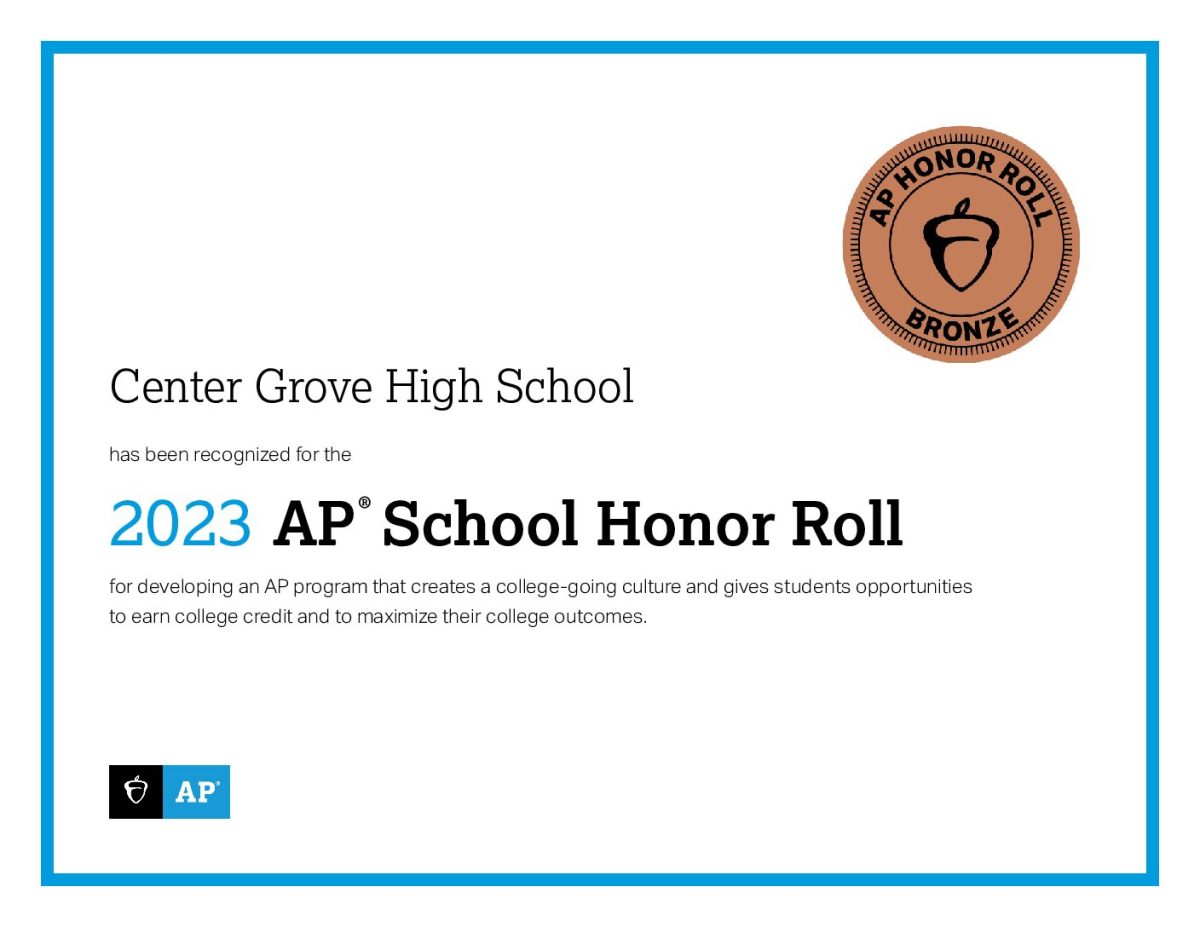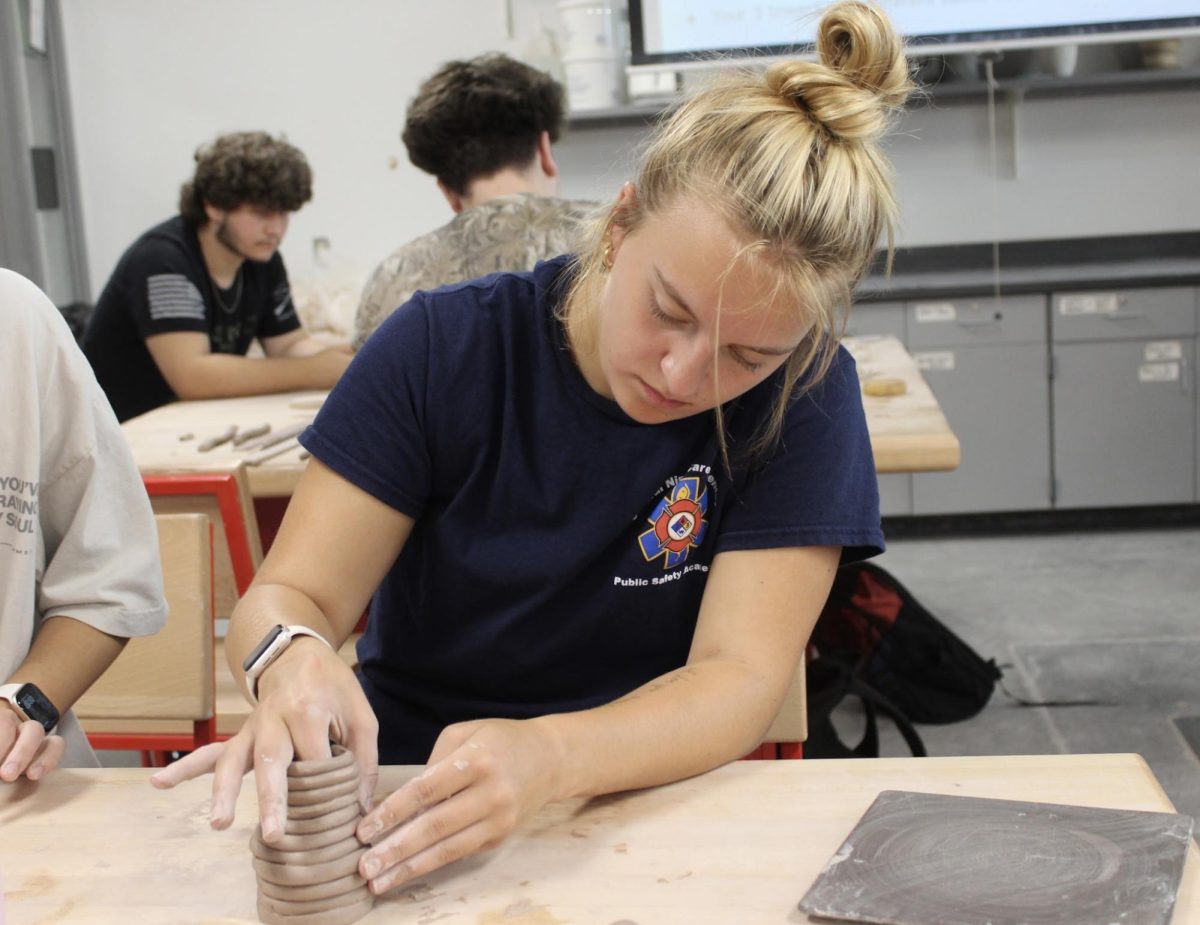On Tuesday morning, for the first time in school history, Center Grove High School was recognized as a bronze-tier AP Honor Roll school.
“The College Board has changed their award system to reward individual schools who meet certain criteria and success with the AP Exam,” assistant principal and director of Early College Tracey McMahen said. “On the honor roll, they recognize schools in the bronze category, the silver category and the gold category. We were recognized as a bronze-category winner.”
To be recognized with a bronze, a school is required to have a percentage of 40 or more of its graduating class take at least one AP exam, and 25 percent of this same class needs to earn a passing score of a three or higher on this exam. Beside these baselines, the final criterion gets even more specific.
“We have to have at least two percent of our graduating class take five or more exams with at least one of those exams being within their sophomore and junior year,” McMahen said.
Outside of the AP Honor Roll distinction itself, Center Grove was also recognized for a variety of other subcategories.
“Center Grove High School was a silver-category for both the college credit area and the college optimization area,” McMahen said. “We were bronze in college culture.”
This marks the first time in school history that the College Board has selected Center Grove to be recognized for such excellence.
“It’s always a goal to have as many kids as appropriate in AP and earn dual credit,” McMahen said. “Although we didn’t necessarily have to apply for it, it is definitely a credit to the fact that our students and teachers are being successful in working hard and taking the courses that they can.”
While the greatest attraction of AP coursework is the college credit it offers to students in higher education, McMahen sees the value in these courses as skill-builders and preparatory work for students later in life.
“It definitely provides them with appropriate rigor and the skills that they need to be successful as they go on into future classes, whether that’s from their sophomore year to their junior year or so on,” McMahen said. “Even if they don’t earn credit–obviously that is the ultimate goal–they are still learning a lot of skills — time management, cooperating with other people, being challenged at an appropriate level. All of those skills can translate to success in the future.”









